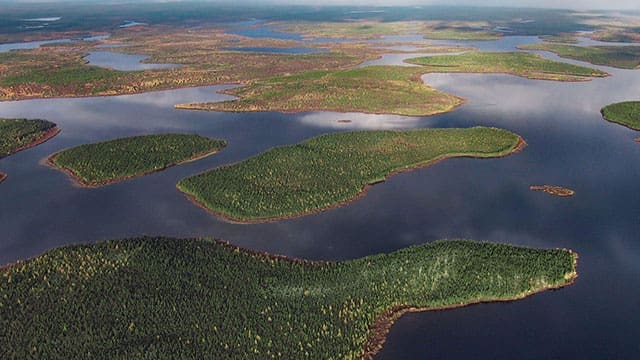Manitoba and feds ought to put brakes on Seal River conservation plans
Manitoba and the federal government have stated that they value securing mineral resource independence amid a heightened global trade war. However, both governments are pressing ahead with plans to cut off a section of northern Manitoba the size of Nova Scotia—an area with significant mineral potential.
In early March, the Seal River Watershed Alliance released a feasibility study, giving governments the green light to begin negotiations on developing a protected area in the Seal River watershed. Federal designation would ban all industrial development across this pristine, 50,000-square-kilometre area.
The alliance—made up of members from four First Nations—signed a memorandum of understanding with the Manitoba government and Parks Canada in January 2024. Federal, provincial and Indigenous leaders are now pursuing formal designation for what would become Canada’s largest Indigenous-led protected area, after a year-long environmental assessment found conserving the watershed is “achievable.”
But the move is advancing despite studies confirming the region’s economic potential. A geological assessment found the area has “medium to high mineral potential.”
Governments should absolutely encourage Indigenous-led conservation. However, that support shouldn’t come at the expense of Indigenous and non-Indigenous communities that wish to pursue measured industrial activity in the region.
No one disputes the ecological value of this area. It’s home to rare wildlife habitat. But is it necessary for the province and Ottawa to lock up such a vast area, ignoring the aspirations of many northern communities, including First Nations, that could benefit from resource development? There must be a way to preserve large portions of this shared natural treasure while also creating jobs, opportunities and securing critical mineral wealth.
The Seal River Watershed Alliance has placed a strong focus on tourism as a development path. While ecotourism should absolutely be pursued, tourism and its spinoff ventures alone are unlikely to secure long-term independence for remote northern communities.
The Manitoba Prospectors and Developers Association (MPDA)—a non-profit advocating for mineral exploration—has raised concerns for years about the consequences of a protected designation.
In September 2024, MPDA president MaryAnn Mihychuk released an open letter to provincial and federal officials outlining the stakes.
She wrote: “The Seal River Basin spans a vast region, covering an area as big as the province of Nova Scotia. While we have only a limited understanding of the mineral resources it holds, initial indicators suggest the presence of significant deposits, including uranium in the west, diamonds in the east, and gold in the south-central region. Because of the region’s lack of infrastructure, particularly roads, exploration has been minimal, leaving much of the region’s potential unexplored… Additionally, restricting access to important and globally needed critical minerals is short-sighted and betrays the efforts of the green economic revolution.”
Governments must work with industry associations, angler and hunter groups such as the Manitoba Wildlife Federation, and the broader public before moving ahead with any designation. They also need to collaborate with Indigenous communities seeking to balance environmental preservation with economic opportunity. These communities could form partnerships with companies or develop sustainable mining ventures of their own.
Manitoba and the federal government should pause any final decision on the Seal River. The province needs a full and open conversation about how to balance conservation with the promise of future economic development.
Joseph Quesnel is a senior research fellow with the Frontier Centre for Public Policy.
Explore more on Manitoba’s Business, Manitoba Environment, Manitoba Politics
The views, opinions, and positions expressed by our columnists and contributors are solely their own and do not necessarily reflect those of our publication.
Troy Media is dedicated to empowering Canadian community news outlets with independent, insightful analysis and commentary. Our mission is to support local media in fostering an informed and engaged public by delivering reliable content that strengthens community ties, enriches national conversations, and deepens Canadians’ understanding of one another.




